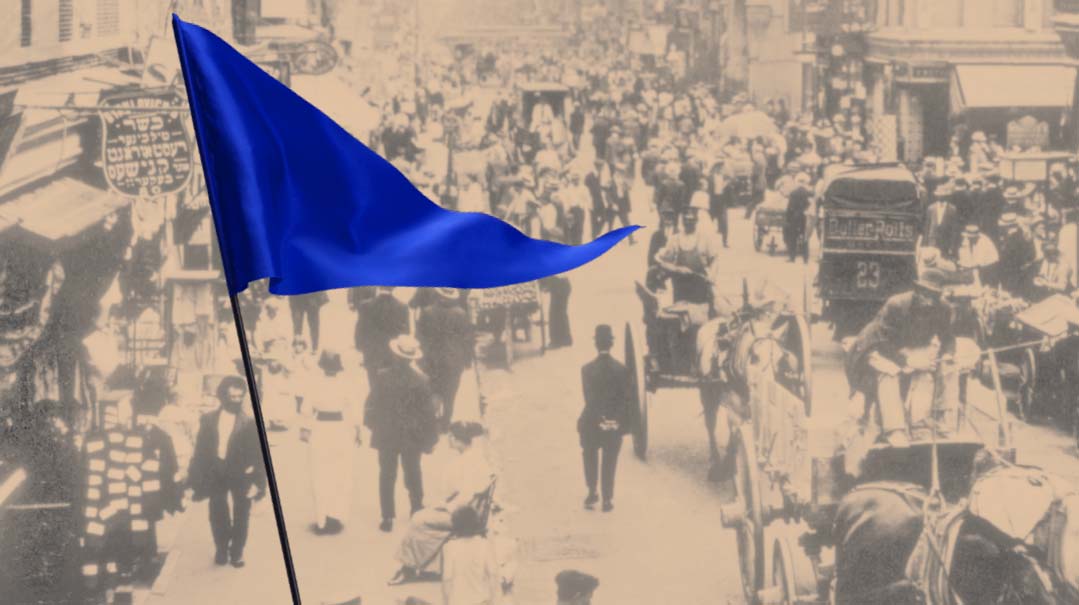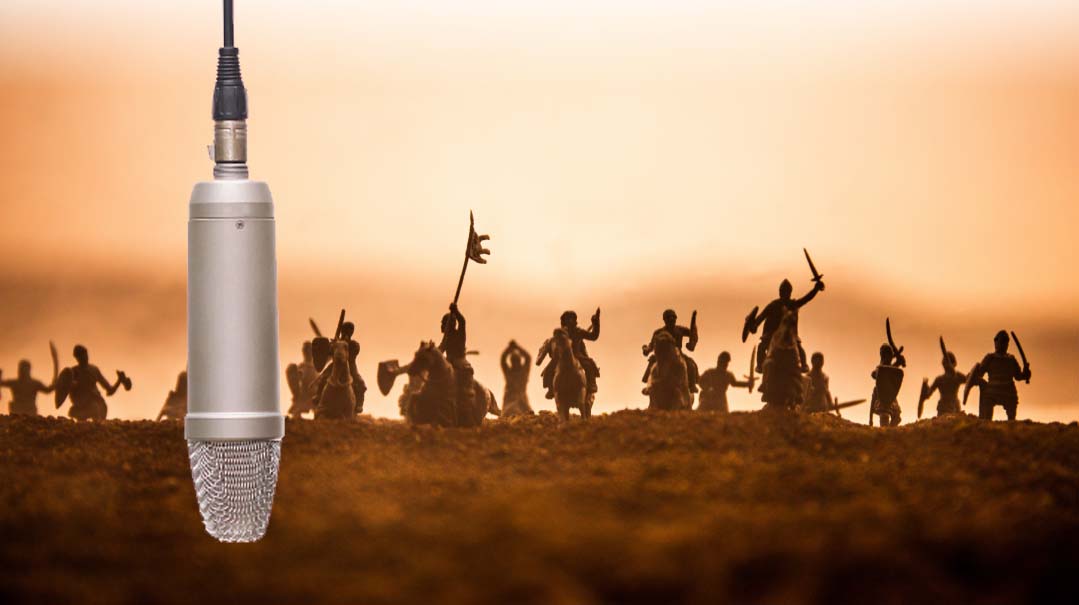Language of the Heart
| November 30, 2021“Mi l’Hashem elai!” In every generation, there are those who respond and take a stand for Hashem

October, 1938
The world stands at the cusp of war. Europe trembles; Germany rocks violently. One young man with fire in his eyes, Solomon Schonfeld, strips his mother’s London home of furniture in order to accommodate the first shipload of what would become thousands of young refugees.
Hannah Cohen of Sunderland, in the north of England, knows nothing of this. Just 21 years old, she’s a fresh graduate of the prestigious University of Durham, proud bearer of a BA in French, German, and Spanish, and the world is her oyster. Bright, articulate, and well educated — one-of-a-kind among the frum girls of her community — Miss Cohen is offered a teaching position at a non-Jewish school even before her exam results come in.
It’s a dreary November morning when Hannah, perusing the Jewish Chronicle as she eats her boiled egg, sees the advertisement that will change the course of her life. It’s an appeal for help: German-speaking volunteers are needed, there are boatloads of children arriving from Europe, escaping Nazi rule, unable to communicate with their rescuers. The advert is signed by Solomon Schonfeld.
Hannah is the youngest of a loving family, the daughter of one of the most influential community members, and now, a successful language teacher. She has no reason to leave her comfortable life in Sunderland, no reason to move to the hustling city of London, no reason to abandon the career she’d been so eager to begin.
And yet, when she reads the ad, her first thought is: This sounds like a much better idea than teaching.
Miss Cohen remains at her post until the end of term, then she gives notice and sets off for London. She arrives at the Schonfeld home to see it filled, wall to wall, with mattresses for the refugee children. The first Kindertransport arrives, and Miss Cohen — armed with just her language skills and her love — is waiting to greet it.
Thanks to her studies, she speaks fluent German — and, of course, English. (She also speaks French, Spanish, and some Latin and Hebrew.) Most importantly, she speaks the language of the heart. She can talk to the children, act as translator, help them interpret their new world, and ease the fears, the strangeness, the loneliness.
One day, the entire world will know of the Kindertransport — the desperate, heroic attempt to save Europe’s children. One day, Rabbi Dr. Solomon Schonfeld will be a household name, lauded for his courage, fortitude, and determination to rescue every ember he can. One day, 3,700 men and women, and their children and their children and theirs will owe their lives to him.
But in January 1939, none of this is known, and none of it matters. What matters are the children, some as young as six years old, stepping off ships and trains under gray English skies, clutching battered valises with ice cold hands. Fearful eyes, slight coat-clad figures standing wind-whipped and frightened in a cavernous English train station. Disoriented as a strange language swirls around them, incomprehensible and frightening.
And then a young woman steps forward. Wilkommen, kinder. Welcome, children. My name is Miss Cohen. I’m here to take you to your new home.
Her German is slightly stilted, her voice refined, her accent unlike the throaty guttural sounds of home. But the words, the words are their own mother tongue, and the children cling to them.
Miss Cohen lodges with the Winegarten family (who will eventually become her in-laws when she marries their son Moshe). But she spends all day, every day, at the home of the Schonfelds — giving the children breakfast, speaking to them in their own tongue, taking care of their laundry.
The refugees have little more than the clothes on their backs, so the young surrogate mother writes out careful lists and heads to London’s clothing shops to supply each one with what they need. And slowly but surely, as adoptive families are found for each child, who but Miss Cohen is there to help them to pack their bags, prepare them for yet another adjustment, and ease the way by teaching them enough of their new language to get by?
Hannah stays in London just as long as it takes to place every refugee by a suitable adoptive family. She herself takes two boys back to Sunderland; one is adopted by her own family and the other by another member of the kehillah. The part she plays in the dramatic story of the Kindertransport rescue is but small. Her name isn’t mentioned in the history books or biographies, nor does it star in any published memoirs and famous stories.
But Granny, Mrs. Hannah Devorah Winegarten, never regretted answering the call of a small print ad in 1938 — to leave her home, job, and familiar life behind, to act as surrogate mother for dozens of bereft orphaned children.
To give them the gift of a common language.
The gift of words they could speak and words they could understand.
The gift of communication in a strange and terrifying new world.
The words were German; the language was love.
L’illui nishmas my great-grandmother, Chana Devorah bas Shlomo.
(Originally featured in Family First, Issue 770)
Oops! We could not locate your form.







